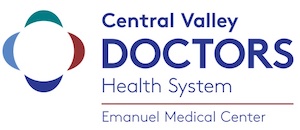Emanuel Cancer Center Raising Awareness about Colorectal Cancer
Mar 8, 2019Turlock, Calif. – March is Colorectal Cancer Awareness Month and Emanuel Cancer Center is raising awareness of this potentially life-threatening disease. The good news is, colorectal cancer is preventable, treatable and beatable.
Colorectal cancer is not a common topic of conversation, but it’s important to talk about and it’s important to get screened. Excluding skin cancers, colorectal cancer is the third most common cancer diagnosed in both men and women in the United States. The American Cancer Society estimates the following statistics for colorectal cancer cases in the United States for 2019:
- 101,420 new cases of colon cancer
- 44,180 new cases of rectal cancer
Colorectal cancer starts in the colon or the rectum. These cancers can also be named colon cancer or rectal cancer, depending on where they start. Most colorectal cancers start as a growth – called a polyp – on the inner lining of the colon or rectum.
“Many lifestyle-related factors have been linked to colorectal cancer,” said Dr. Mohamed Eldaly, Medical Oncologist at Emanuel Cancer Center. “The links between diet, weight and exercise and colorectal cancer risk are some of the strongest for any type of cancer.”
Regular colorectal cancer screening is one of the best ways for preventing colorectal cancer. With regular screening, most polyps can be found and removed before they have the chance to turn into cancer.
“Men and women, if you’re age 45 or older, you should start getting screened for colorectal cancer. However, we are seeing an increase in colorectal cancer cases that are impacting patients in their 20’s and 30’s,” Dr. Eldaly said. “The reasoning for this increase may be related to dietary changes. For example, high fat diets from an early age alter bacteria in the intestines that may predispose to cancer. The same occurs with low fiber diets – meaning lacking fruit and grains – which may alter the healthy bacteria in the intestines.”
There are currently no formal screening guidelines for colorectal cancer patients in their 20’s and 30’s, except in the instance of a strong family history, history of intestinal polyposis or a known genetic mutation. However, a genetic DNA test may be an alternative screening.
Listen to your body. Colorectal cancer might not cause symptoms right away, but if it does, it may cause one or more of these symptoms:
- Change in bowel habits that lasts more than a few days
- Feeling that you need to have a bowel movement that’s not relieved by having one
- Rectal bleeding or blood in the stool
- Cramping or abdominal pain
- Weakness and fatigue
- Unintended weight loss
“It’s important to know many of these symptoms can be caused by conditions other than colorectal cancer, such as infection or irritable bowel syndrome,” Dr. Eldaly explained. “Still, if you have any of these problems, it’s important to see your doctor right away. Early screening and detection of colorectal cancer is crucial.”
To take a free online health risk assessment for colorectal cancer, please visit EmanuelMedicalCenter.org/for-patients/health-risk-profilers or call (855) 819-5294 to find a physician and schedule a screening, if you are 45 years or older.
At Emanuel Cancer Center, we understand the importance of providing support for our patients and their loved ones. We offer a variety of support groups for patients and their support system network:
- Cancer in Your Life support group: For all adult cancer patients
- Monkey Business: Support group for kids, ages 5-17
- Look Good, Feel Better: Beauty techniques for women who are undergoing radiation and chemotherapy
- YAC (Young Adults with Cancer): Support group for young adults ages 18-39 who have been diagnosed with cancer
Other services offered at Emanuel Cancer Center include: nutrition services, wig and scarf room, cancer resources and materials, chair yoga, massage therapy and art therapy.

